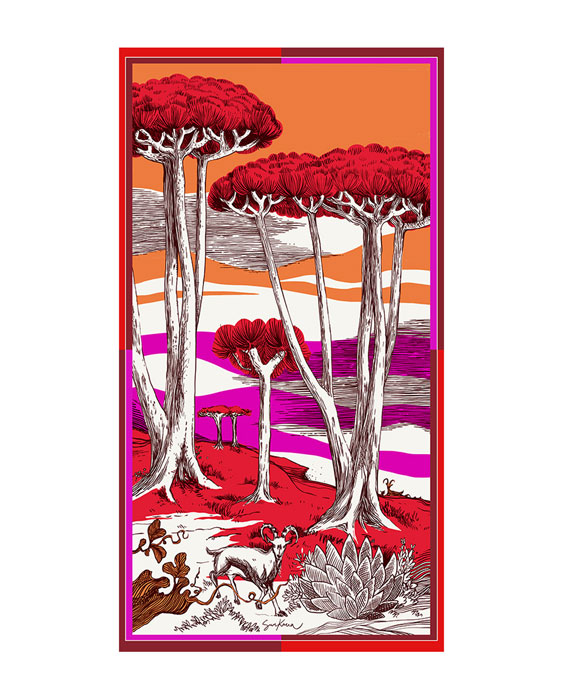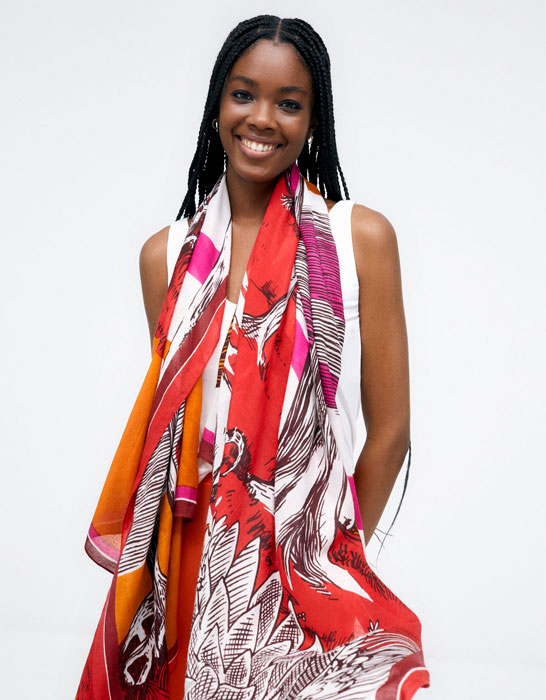Spring is synonymous with the purchase of scarves, and why not buy one that does good? Surkana is committed to fighting one of the world’s major humanitarian crises by supporting families affected by the war in Yemen. The Socotra scarf’s entire proceeds are donated to the Spanish humanitarian organization Solidarios Sin Fronteras, which provides food, water, and emergency supplies to Yemeni families.
Solidarity and inclusiveness are values that pulse at the heart of Surkana, which has decided to donate 100% of the sales of the scarf of solidarity to the NGO Solidarios sin Fronteras. This organization provides direct humanitarian aid and promotes development in Yemen by providing food, water, and emergency support to families affected by the war, particularly those forced to flee their homes due to bombardment.
The Surkana scarf of solidarity draws inspiration from Socotra, a paradise island in Yemen.
For over a decade, Surkana has collaborated with various organizations to improve the conditions of the most disadvantaged people and build a more inclusive future in which no one is left behind. Among them are Active Africa, Aldeas Infantiles, Chascar, and the Red Cross.









